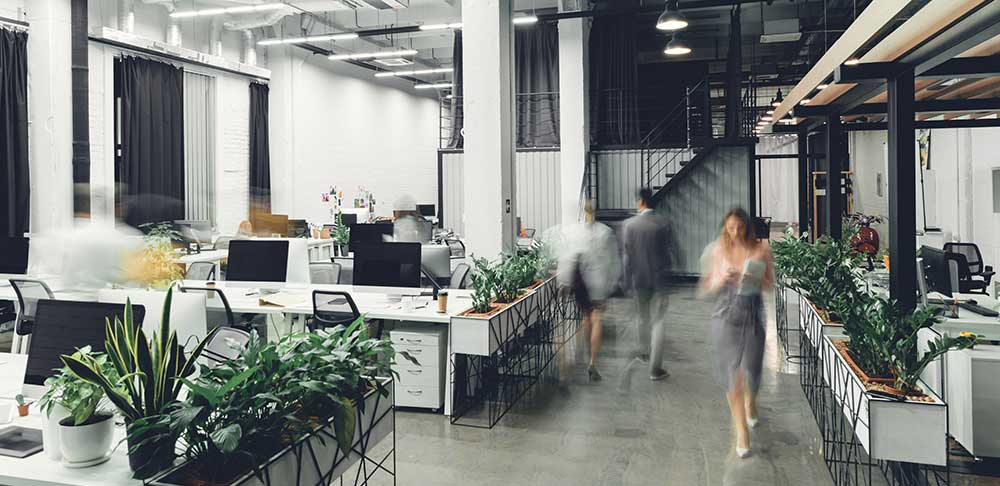-
 1215
1215 - Posted in May, 2023
Roadmap To Sustainable Office Spaces

India in The UN Climate Change Conference 2021 stated its bid to become a net-zero carbon economy by 2070. With the built environment being responsible for over 40% of global greenhouse emissions, the reduction of carbon emissions by the real estate sector was one of the focal points of this summit. Furthermore, the post-pandemic world has ushered in the ‘Age of Recovery and Revaluation’ with environment conservation being an omnipresent concern of the social consciousness. The modern workforce is therefore inclined toward businesses that are proactively engaged in reducing carbon emissions while providing exceptional opportunities for economic growth.
One way employees today assess companies' endeavour towards employing green practices is with a renowned Sustainability Certification. U.S. Green Building Council’s LEED certification is the most distinguished in India and globally, with over 80% Green, Grade A buildings utilising it. With the future of work’s evolving propensity for environmentally responsible workspaces, there is momentum among asset owners and investors alike, towards a new, future-proof workplace. The business owners are now holding themselves accountable, as their success is contingent on them fulfilling their sustainability responsibilities.
The built environment is innately material and operation intensive, with over 30% of its carbon emission being the collateral of raw material procurement and construction process. It is therefore imperative to adopt sustainable practices throughout the building life cycle, right from the pre-construction stage to the actual operation of the building. From adopting energy-efficient mechanisms to water conservation systems to responsible resource procurement, businesses today are engaged in affirmative action to mitigate climate change.
Following are some measures businesses can implement on their journey to actualizing India’s vision of a net zero carbon economy:
Energy-Efficient Practices:
Green buildings make use of renewable resources like solar energy which allay the detrimental brunt of traditional energy sources that release toxic greenhouse gases. Employing energy-efficient practices is one of the most cost-effective ways to reduce carbon emissions. Further, the utilisation of ecologically sound energy sources allows for lower pollution levels and cleaner air for all.
Water Conservation:
Home to 17% of the world’s population, India possesses a meagre 4% of the global freshwater stock. With the rapid urbanisation steered in by the perpetually expanding built environment, there is increasing pressure on the limited portable water sources. Further, water bodies are rife with industrial waste, and toxic metals, with waterbeds depleting at an alarming level. Consequently, modern employees are seeking organisations that are employing numerous water conservation mechanisms such as rainwater harvesting as well as water treatment plants.
Biophilic Infrastructure:
An important component of the WELL Business standard rating, Biophilia is the integration of natural elements such as green spaces, trees, plants, sunlight, etc in the design of workspace infrastructure. Biophilic elements benefit the workforce, the employers, and the environment in myriad ways. These elements not only assist in rejuvenating the workforce by their sheer aesthetic presence but also work to regulate blood pressure and stress level. In addition to providing enhanced air quality to the workforce, including these elements minimise the heat island effect thereby reducing power consumption.
DLF Offices: A Blueprint for sustainable workspace:
Embellishing India’s skyline since 1946, we at DLF are aware of our responsibility to propel India on its journey toward sustainability. Further, we recognize that for the future of work, it is imperative to continuously innovate to forge green, intelligent, and energy-efficient workspaces. With over 40 mn sq. ft. of our portfolio being LEED-Platinum certified, we are committed to operational excellence while pursuing growth that is environmentally and socially sustainable.
Our sustainability practices commence right from the design stage in a building’s life cycle. All our offices are equipped with water conservation and greywater treatment mechanisms. We are also committed to reducing the dependence on conventional sources of energy. We have installed solar panels at all DLF offices whose carbon emission is negligible, and the wattage is being increased year on year.
At DLF Offices, we provide the modern workforce with a holistic ecosystem wherein they get ultra-modern, flexible office spaces to collaborate and innovate with the best minds, without compromising the ability of future generations to do the same.
Net-zero carbon offices aim to balance carbon emissions by reducing consumption and offsetting the rest. This means minimizing emissions during construction, operations, and maintenance while promoting renewable energy and eco-friendly practices.
LEED (Leadership in Energy and Environmental Design) is the most globally recognized sustainability certification. In India, over 80% of green, Grade-A buildings are LEED-certified, making it a gold standard for environmentally responsible infrastructure.
DLF has over 40 million sq. ft. of LEED Platinum-certified office space. From solar energy integration to greywater treatment and energy-efficient building design, DLF is actively reducing carbon emissions throughout the building lifecycle.
DLF Offices integrate: Solar panels and renewable energy systems Rainwater harvesting and water treatment Biophilic design with green terraces and natural light High-performance HVAC and energy-efficient lighting systems
Biophilic design incorporates greenery, daylight, and nature-inspired elements to improve air quality, reduce energy use, and boost employee well-being. It’s a core part of DLF’s commitment to WELL Building standards.
Yes. DLF’s LEED Platinum certifications, WELL Health-Safety seals, and consistent green innovation have positioned it as a benchmark in sustainable real estate—both in India and globally.
Workforces today prefer companies that align with ESG values. Green offices enhance air quality, comfort, and mental health, fostering productivity and brand loyalty—all while reducing operational costs.
